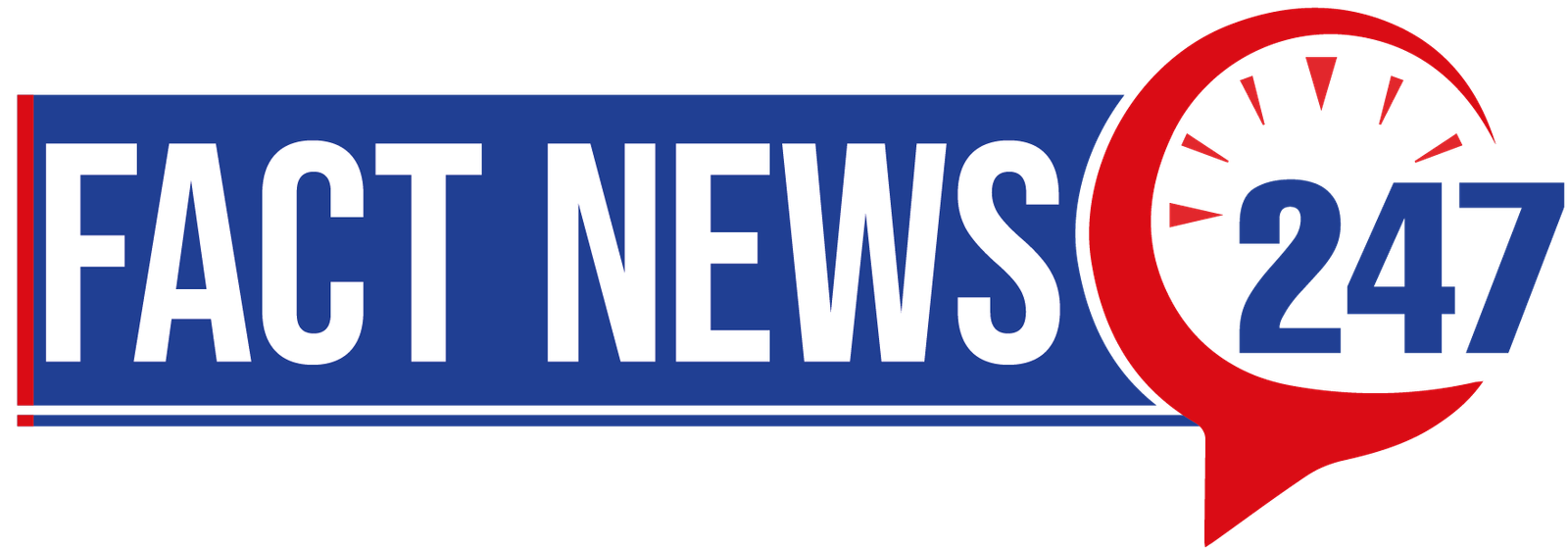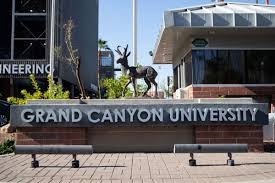Image Credit: CNN
As college costs continue to rise, understanding the financial commitment of higher education becomes crucial for prospective students and their families. Grand Canyon University tuition is a topic of interest for many considering this private Christian institution. With its diverse program offerings, including online degree programs and traditional campus experiences, GCU’s pricing structure warrants a closer look.
This article provides a comprehensive breakdown of Grand Canyon University tuition and associated expenses. It explores the various components that make up the total cost of attendance, including room and board for campus students. Additionally, it examines financial aid options such as scholarships, grants, and student loans, as well as the process of applying for FAFSA and Pell Grants. By delving into these aspects, readers can gain a clearer picture of the net price they might expect to pay at GCU.
Table of Contents
ToggleBreakdown of GCU Tuition Costs
Grand Canyon University (GCU) offers a diverse range of tuition rates based on various factors such as program type, credit hours, and student status. This breakdown provides a comprehensive overview of the costs associated with attending GCU.
Undergraduate Tuition
For traditional undergraduate students, GCU employs a tiered pricing structure. Students taking 1-11 credits are charged $687.50 per credit. Those enrolled in 12-18 credits benefit from block tuition, which is set at $8,250.00 per semester. Students taking 19 or more credits pay the block tuition plus an additional $687.50 for each credit above 18.
GCU also offers a special summer rate for traditional undergraduate students, except for pre-licensure nursing cohorts, at $310.00 per credit. For Accelerated Bachelor of Science in Nursing (ABSN) programs across all locations, the rate is $850.00 per credit.
It’s worth noting that traditional, campus undergraduate students are required to take a minimum of nine credits in the traditional, campus format during the fall and spring semesters. If these students opt for online courses, they will be charged the regular traditional tuition rates.
Graduate Tuition
Graduate students at GCU follow a similar pricing structure to undergraduates. For 1-11 credits, the rate is $687.50 per credit. Graduate students enrolled in 12-18 credits benefit from block tuition at $8,250.00 per semester. Those taking 19 or more credits pay the block tuition plus an additional $687.50 for each credit above 18.
Online vs. On-Campus Costs
GCU’s online and evening tuition rates differ from traditional on-campus rates. These rates vary depending on the program of study, with typical ranges for undergraduate, graduate, and doctoral programs differing per credit hour.
For online undergraduate programs, rates range from $340.00 to $485.00 per credit, depending on the specific program. Graduate online programs range from $410.00 to $740.00 per credit. Doctoral and research continuation courses are priced at $740.00 per credit.
GCU offers special rates for active duty military, active reserve, National Guard members, and their spouses. For undergraduate online programs, the effective rate after scholarship is $250.00 per credit, while for graduate programs, it’s $400.00 per credit.
It’s important to note that as a private university, GCU maintains the same tuition rates for both in-state and out-of-state students, providing equal opportunities for all students regardless of their residency status.
Additional Fees and Expenses
Grand Canyon University students should be aware of various additional costs beyond tuition. These expenses contribute to the overall cost of attendance and vary depending on factors such as living arrangements and program requirements.
Room and Board
For students living on campus, room and board is a significant expense. The estimated cost for room and board at GCU is $7,800 per academic year. This covers housing and meal plans for students residing in university dormitories or apartments.
Students who choose to live off-campus may have different expenses. The average monthly rent for a one-bedroom apartment near GCU is approximately $1,158. This translates to about $13,896 for a 12-month period, which is higher than on-campus housing costs.
Books and Supplies
GCU estimates the cost of books and supplies to be around $800 to $1,000 per academic year. This includes textbooks, course materials, and other necessary educational supplies. The exact amount can vary depending on the student’s program of study and course load.
Other Mandatory Fees
GCU charges several mandatory fees that students should factor into their budget:
- Student Activity Fee: $350 per semester for traditional campus students (excluding pre-licensure nursing students)
- Technology Fee: $100 per semester
- Facility Fee: $100 per semester
- Health and Wellness Fee: $125 per semester
Additional program-specific fees may apply:
- Computer Science, Programming, Engineering, and IT programs: $1,000 per semester
- Athletic Training: $500 per semester
- Worship Arts: $250 per semester
Other fees include:
- Canyon Connect fee: $115 per course (undergraduate), $160 per course (pre-licensure nursing)
- Student Parking Fee: $350 per academic year
- Health Insurance: $2,865 per academic year (if not waived)
- Graduation Fee: $150
Students should also budget for personal expenses and transportation costs, which can vary widely based on individual circumstances. GCU estimates these additional expenses to be around $5,700 per academic year.
Financial Aid Options at GCU
Grand Canyon University offers various financial aid options to help students fund their education. These options include scholarships, grants, student loans, and work-study programs.
Scholarships
GCU provides generous scholarship opportunities for traditional undergraduate campus students. These scholarships aim to make a private, Christian education more affordable. The university offers a variety of campus scholarships for students taking courses on the main campus. Additionally, GCU has developed relationships with numerous employers and organizations nationwide, providing scholarships to eligible participants interested in pursuing a degree, certificate, or taking a single course.
For online students, GCU offers various scholarships available for those earning their degree through online or evening courses. Students pursuing an accelerated BSN program in Arizona can apply for scholarships based on financial need. Furthermore, students enrolling in the accelerated BSN pre-nursing program at the Salt Lake City (Sandy, UT) learning site may qualify for a $2,000 scholarship toward their tuition.
Grants
While specific information about grants is not provided in the given factual keypoints, it’s important to note that grants are typically need-based financial aid options that do not require repayment. Students are encouraged to explore grant opportunities through the Free Application for Federal Student Aid (FAFSA).
Student Loans
Student loans represent another potential resource for funding education at GCU. Both subsidized and unsubsidized Federal Direct Loans are available, originated and guaranteed by the U.S. Department of Education. Repayment for these loans begins six months after graduation, withdrawal, or when enrollment falls below half-time.
Direct Subsidized Loans are available to undergraduate students demonstrating financial need, with the U.S. Department of Education paying the interest while students are in school at least half-time. Direct Unsubsidized Loans are available to both undergraduate and graduate students without the need to demonstrate financial need, but interest accrues immediately upon disbursement.
Work-Study Programs
GCU offers two types of work-study programs:
- The Federal Work-Study Program: This program offers on-campus positions that can enhance students’ skills and provide career development experience.
- The GCU Work-Study Program: This student employment program is for students who are not eligible for Federal Work-Study. Eligibility is determined by completing a FAFSA.
Additionally, students awarded Federal Work-Study have the option to work off-campus in community service positions, such as assisting teachers in local elementary schools. This opportunity is particularly beneficial for education majors seeking hands-on experience.
Conclusion
Navigating the financial landscape of higher education can be daunting, but understanding Grand Canyon University’s tuition and associated costs provides a clearer picture for prospective students. The breakdown of tuition rates, additional fees, and living expenses offers a comprehensive view of the total investment required. This information enables students and their families to make informed decisions about their educational journey.
GCU’s commitment to making education accessible is evident through its various financial aid options. From scholarships and grants to student loans and work-study programs, the university offers multiple avenues to help students fund their education. By exploring these options and carefully considering their individual circumstances, students can find ways to make their GCU experience more affordable. In the end, this detailed look at GCU’s costs and financial aid options serves as a valuable resource to help students plan their academic future.
FAQs
What is the cost per class at Grand Canyon University?
The specific cost per class at GCU can vary based on the program and type of course. For detailed information, it’s best to consult the university’s official tuition page or contact their admissions office.
Does Grand Canyon University charge additional tuition for out-of-state students?
No, Grand Canyon University does not charge additional tuition for out-of-state or international students. They aim to offer competitive tuition rates to make private, Christian education accessible to students from all regions.
What is the tuition fee for Grand Canyon Private Academy?
The tuition fee for Grand Canyon Private Academy is not specified here. For accurate and up-to-date information, please visit their official website or contact the academy directly.
Will there be a tuition increase at GCU in the near future?
No, there will be no tuition increase at Grand Canyon University for the 2024-25 academic year at its Phoenix campus. This marks the 16th consecutive year without a tuition hike.
























+ There are no comments
Add yours